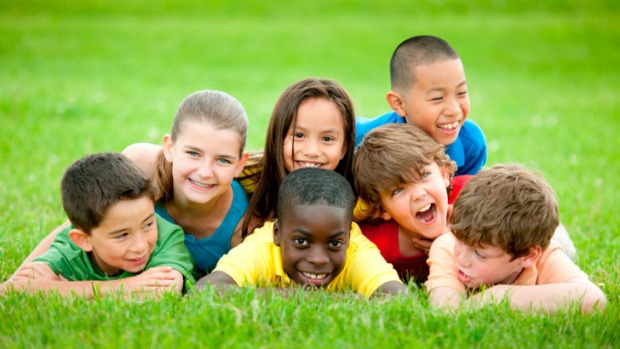To support individual sessions Lakeside Rooms offers our Enhancing Emotional Resilience group program for children.
What is Emotional Resilience?
“Resilience” in psychology is the positive capacity of people to cope with stress and adversity.
This coping may result in the individual “bouncing back” to a previous state of normal functioning, or using the experience of exposure to adversity to produce a “steeling effect” and function better than expected (much like an inoculation gives one the capacity to cope well with future exposure to disease).

Resilience is most commonly understood as a process, and not a trait of an individual.
Emotional resilience is a valuable skill for all children. It is about being in control and believing in one’s ability to work through setbacks and risk situations in a capable, effective manner. This capacity for resilience empowers the child to develop coping behaviours, to persist in the face of failure, to bounce back with confidence and a healthy self-esteem.
“A resilient mindset provides a basic foundation and reservoir of emotional strength and can be called on to manage daily challenges” (Brooks and Goldstein 2003).
Most research now shows that resilience is the result of individuals interacting with their environments and the processes that either promote well-being or protect them against the overwhelming influence of risk factors.
These processes can be individual coping strategies, or may be helped along by good families, schools, communities, and social policies that make resilience more likely to occur.
In this sense “resilience” occurs when there are cumulative “protective factors”. These factors are likely to play a more and more important role the greater the individual’s exposure to cumulative “risk factors”.
Risk Factors
- Genetics
- Physiological sensitivity –low thresholds for stress
- Negative life events and traumas
Protective Factors
- Attachment
- Cognitive Style
- Family
- Friendships
- Good physical health
Why should we try to enhance emotional resilience in children?
Anxiety is considered to be the most common form of psychological disorder, affecting up to 20% of children and teenagers. Anxiety is real and a serious health problem and leads to significant personal suffering. It interferes with people reaching their potential, affects productivity & functioning, and increase rates of chronic health issues. Research has shown that if left untreated, anxiety can lead to:
- Separation difficulties
- Social difficulties
- Behaviour problems
- Depression
- Missing school or dropping out
- Higher rates of substance abuse
- Suicidal ideation
- Anxious adults
Warning Signs of Anxiety or Depression in Children
Anxiety: Excessive
- Worry (anticipatory)
- Avoidance
- Attention to threat
- Fast and sustained physiological arousal
- Psychosomatic complaints
- Difficulty in resting and going to sleep
- Shyness
- Social withdrawal
- Perfectionistic
- Clingy, impulsive or distracted
Depression: Excessive
- Sadness
- Loss of pleasure
- Social withdrawal
- Early morning insomnia
- Hopelessness and helplessness
- Irritability
- Negative memory biases
- Poor concentration
- Flat affect
- Appetite changes
- Sleeping difficulties
So, what can we do to help children?
As parents, teachers and members of the community our role is to reduce children’s exposure to risk factors and increase their exposure to protective factors.
It is important if you believe a child is struggling with anxiety or depression that you talk with their parents about obtaining some help.
The goal of the Enhancing Emotional Resilience group program is to teach coping skills to improve a child’s abilities to bounce back and face potential difficulties with confidence.
What do we cover in the Enhancing Emotional Resilience Group?
The sessions are very activity based along with some writing and homework. The content includes:
- affect education- it’s important for children to understand emotions their own and others, have labels for them, understand the physiological symptoms
- learn some relaxation strategies for calming the body and mind
- a child friendly cognitive model to understand negative and positive thinking and the effects on feelings and behaviour
- how to challenge negative unhelpful thinking and replace with positive helpful thoughts
- Being assertive versus aggressive or submissive and coping with bullying
- Friendships and how to enhance friendships
Often the children are anxious about attending the group but the usual response by the end of group is that the children want it to continue and indicate that they enjoyed the program.
Can I get rebates?
Speak to your GP to see if you meet eligibility for medicare rebates or discuss further options with staff at Lakeside Rooms.
How do I join in?
Provision of Groups is currently suspended until further notice
